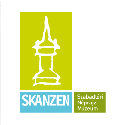Museum compass 3.
 Summary
Summary
In 2007 in the framework of the New Hungary Development Plan based on the European Structural Funds, a large scale development opportunity was set off for the museums. The Museum Education and Training Centre (MOKK) of the Open-air Ethnographic Museum of Szentendre has worked out the program of “Museums for Everybody” – Enhance the educational and training role of museums – Central methodological development, outstanding project, the general objective of which is: construct new museum pedagogical solutions for the competency based public education, and build cooperation among museums and institutions of public education.” The activities of the program embrace four research projects. One of them, namely the research titled “Museums serving public education” is carried out by the ELTE University’s Museum Pedagogical Working Group of the School of Pedagogy and Psychology recommended by the Ministry of Education and Culture.
The research focused on the following:
- the role and tasks of museums in educating growing generations, in life-long learning and in acquiring ’useful knowledge’
- expectations of schools and the public education system
- experience and needs of museum educators who graduated from ELTE
- different museum education/pedagogy trainings in domestic higher education
- prospects of connecting museum education and national public education documents including nursery schools, primary schools, vocational schools and high schools
- competence-based school education in museums
- feasibilities of initiating non-major-based education in museums
- effectiveness of museum pedagogy in schools, analysing and introducing effective schools and their best practices
- roles and opportunities of out-of-school education and activities
- museum activities placed in schools
- examination of special target groups (people with disabilities)
- revealing contradictory legal regulations and reasons (e.g. paradox of protection of school lessons and opportunities of out-of-school learning).
The research was conducted in the school-year of 2008-2009. The methods included document analysis, representative national questionnaire, introducing the best practices on the basis of the case studies, literature review and complex examinations.
Based on the results of the research we have created this comprehensive study which, on one hand, aims to present best practice comparing domestic public education needs with museum facilities. On the other hand, beside an analysis of the Hungarian situation, it shows alternatives for solving problems and harmonizing demand and supply.
In parallel, other researches have also been started by MOKK. Those ones examine the prospects of cooperation between museums and public education. At the end of the research progress we will be able to make a strategy for increasing museums’ potential for public education by improving museum services to better contribute to school education.





